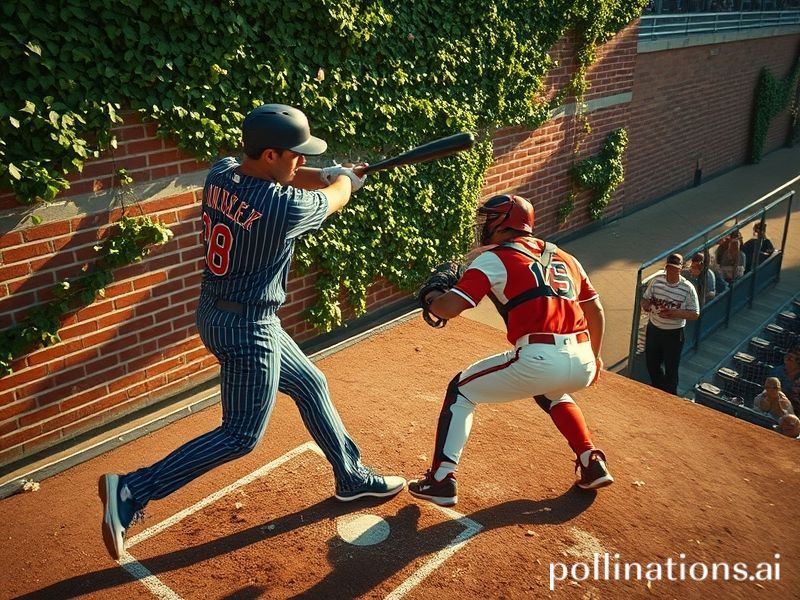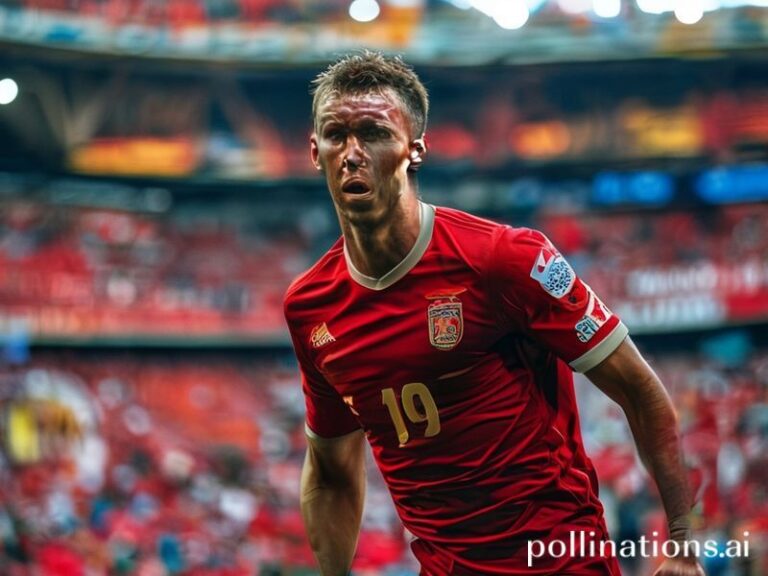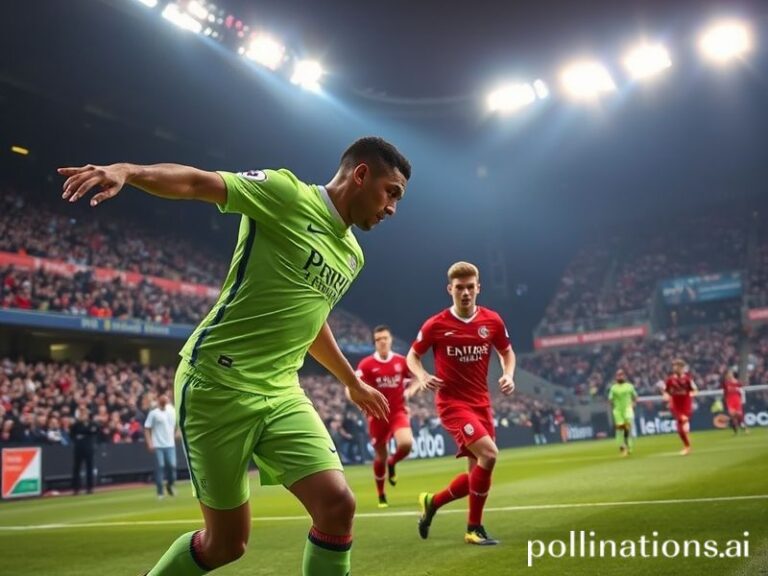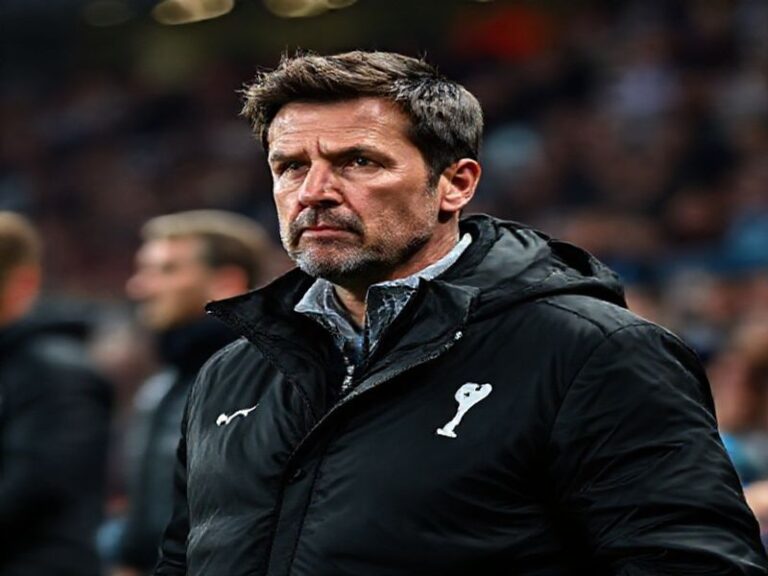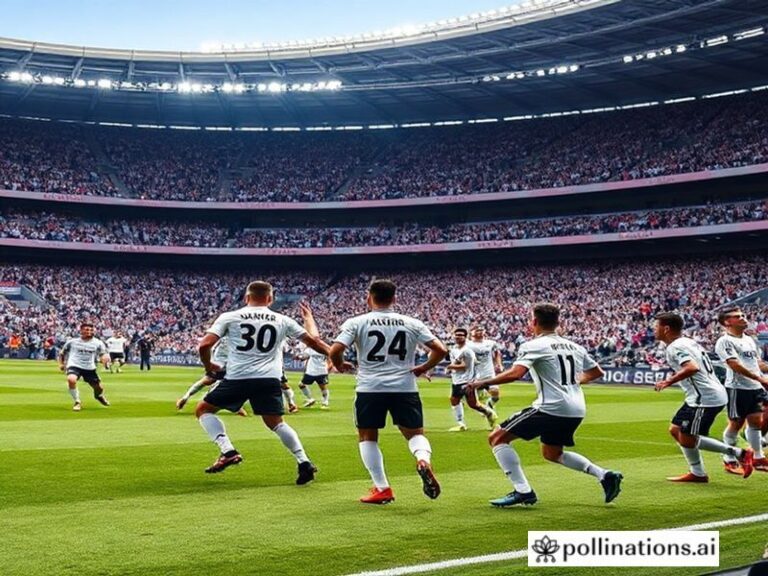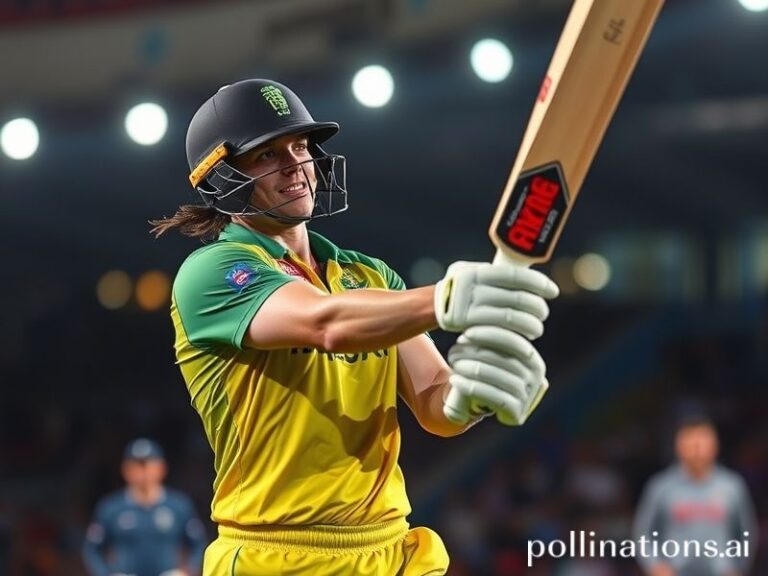Cubs vs Braves: How a Midwestern Grudge Match Became the World’s Favorite Spectator Sport in Late-Stage Capitalism
From the vantage point of a hotel bar in Phnom Penh—where the barman insists on playing 1990s American sitcom theme songs at funeral-parlor volume—the Cubs versus Braves tussle feels less like a ballgame and more like an allegory for late-stage capitalism’s greatest hits. Two franchises, each clutching century-old grievances like passports to self-pity, meet in October when the rest of the planet is busy calculating how many more interest-rate hikes it can absorb before groceries become a luxury brand. Yet here we are, because the world still tunes in, proving that Schadenfreude is the only export the United States never slaps tariffs on.
Chicago and Atlanta are separated by roughly 470 miles of interstate and three entire paradigms of civic disappointment. The Cubs carry the burden of 108 allegedly cursed years, finally broken in 2016, a catharsis so complete that the city briefly forgot it was bankrupt. The Braves, meanwhile, spent the ’90s stockpiling pennants like NFTs, only to discover that the only thing harder than winning one World Series is winning two. Internationally, this translates into a contest between two economic philosophies: the Keynesian binge of Wrigleyville (where every tax incentive is greeted with artisanal bourbon) versus the Sun Belt libertarianism of Cobb County (where public transit is rumored to be a Marxist hoax). Both fan bases will tell you they’re underdogs, a delusion so sweet it might as well be shipped in from OPEC.
Overseas audiences watch for anthropological clues. In Seoul, a fried-chicken franchise live-streams the game to promote its “Curse-Buster Wings,” marinated in soju and regret. Lagos betting shops offer odds on how many times the broadcast will cut to a celebrity who hasn’t thrown a pitch since dial-up internet. Meanwhile, EU regulators debate whether the chop chant constitutes cultural genocide or merely noise pollution. The Braves’ tomahawk chop—an anthropological leftover about as subtle as a drone strike—has become a diplomatic incident waiting to happen. One imagines a future summit where the U.N. Security Council convenes to decide whether rhythmic arm movements are worse than climate change. (Spoiler: they’ll punt to the next committee.)
On the field, the stakes appear parochial but ripple outward like a collapsing currency. A Cubs win would embolden every rust-belt mayor to subsidize yet another stadium under the banner of “hope.” A Braves victory gives the American South another opportunity to brag about grits and grievance, commodities now traded on the futures market right next to wheat and microchips. Either way, the real action is in the luxury suites, where oligarchs from five continents compare yacht lengths and quietly purchase citizenship-by-investment programs should the U.S. ever decide to invoice them for the privilege of existing.
The players themselves are multinational mercenaries. The Cubs’ bullpen features a Dominican flamethrower who once quit winter ball because the team bus was literally held together by prayer and zip ties. The Braves counter with a Japanese closer whose postgame interviews require three interpreters and one existential counselor. Both men will retire with enough frequent-flyer miles to terraform Mars, yet their names will be misspelled on jerseys from here to Ulaanbaatar. Such is the global supply chain of dreams: assembled in Latin America, branded in North America, consumed everywhere Wi-Fi still pretends to be free.
When the final out is recorded, the winning city will celebrate with controlled riots and craft-beer hangovers. The losing city will console itself by electing another mayor who promises to “bring the trophy home,” a phrase that now polls better than “balanced budget” in every language Google Translate recognizes. The rest of the planet will shrug, adjust the exchange rate, and queue up the next distraction—probably a royal wedding or a cryptocurrency meltdown, whichever drops first on Netflix.
Baseball, they say, is a metaphor for life. That’s only true if your life involves billion-dollar scoreboards, arbitration hearings, and the persistent suspicion that the fix is in. So raise a lukewarm international lager to the Cubs and Braves: two teams, one empire, zero lessons learned. Somewhere in a refugee camp, a kid wearing a bootleg Kris Bryant jersey is learning English from an announcer screaming about exit velocity. He already understands the essential truth: the game never ends, it just gets exported.

